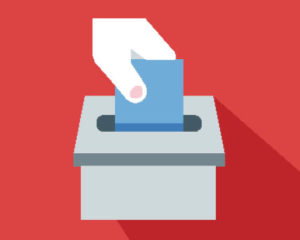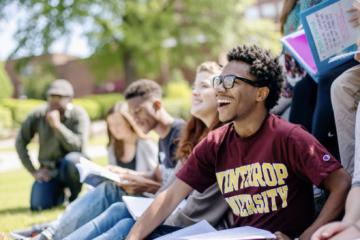State and local elections have a huge effect Winthrop issues and U.S. laws
Many college students feel that local elections are not as important as the presidential election and do not want to waste time voting on things that do not affect them. Many people do not even know who the elected officials of their states and towns are. However, there are many reasons that local elections actually matter more to a college student than other people in the community. Local elections have been long overlooked by young adults aged 18-29, and it’s time that we change this.
The people elected in our district decide where the budget goes and which problems are the most pressing to our community. They can decide to spend or take away funding for education, infrastructure or local business. One of the main things that affects Winthrop, as a public university, is the education spending. Whoever controls the budget can decide how much money will be spent on education at public schools. The less money that state schools receive from the local government, the larger the tuition costs for students.
The politicians who become elected in local elections have more impact over the everyday lives of citizens than most people realize. They are accountable for taxes, welfare and the justice department. “It’s not just the legislative and executive branch that you can vote for in the upcoming election,” wrote Nathan Castle for Reporter Magazine. “Judges are also up for election in both local and state courts. These judges decide how laws will be applied and interpreted.” Elected officials act on behalf of citizens to convey their issues to the federal government. This makes participating in local elections the most democratic part of American politics. Elected officials are supposed to represent the citizens. However, when citizens do not vote, there is a disconnect between themselves and the local politicians. These people are the liaisons who exist between citizens and the national government; therefore not voting in local elections becomes counterproductive as well as undemocratic.
CampusVoteProject, an organization dedicated to increasing voting awareness in schools, found that “young adults made up about 21% of the voting eligible population in 2014, but voter turnout for this demographic has reached record lows in recent years. Local offices and issues have a direct impact on a student’s home and college community. Officials make decisions on topics like student debt, funding for higher education and the economy.”
Also, this allows for factions to commandeer local politics by using their power to vote for politicians who only represent their views, instead of the entire community’s. These interests become the only interests to the state, and the majority of people and their concerns to become marginalized within their own community.
Media coverage has been one of the biggest problems with local election turnout. Small, local papers are going out of business, which reduces the amount of attention these events receive. Many different solutions have been proposed to try to increase the turnout for local elections, such as only having elections on even-numbered years in order to use the publicity of the national elections to draw more attention to the local ones.
Participating in local politics is one of the best ways to become active within your community. Increasing participation in local elections will lead to greater participation to improve the general welfare and needs of your community. Your vote carries greater weight in local elections as opposed to national elections due to the smaller demographic that is being represented. This allows for your opinions and concerns to actively be heard compared to a general election where you are fighting with millions of other voices from different parts of the country. People who end up in the presidential races often started out as local elected officials. If everyone thought about whether they wanted their town’s elected officials to be president one day, more people would think twice before staying at home during local elections.




